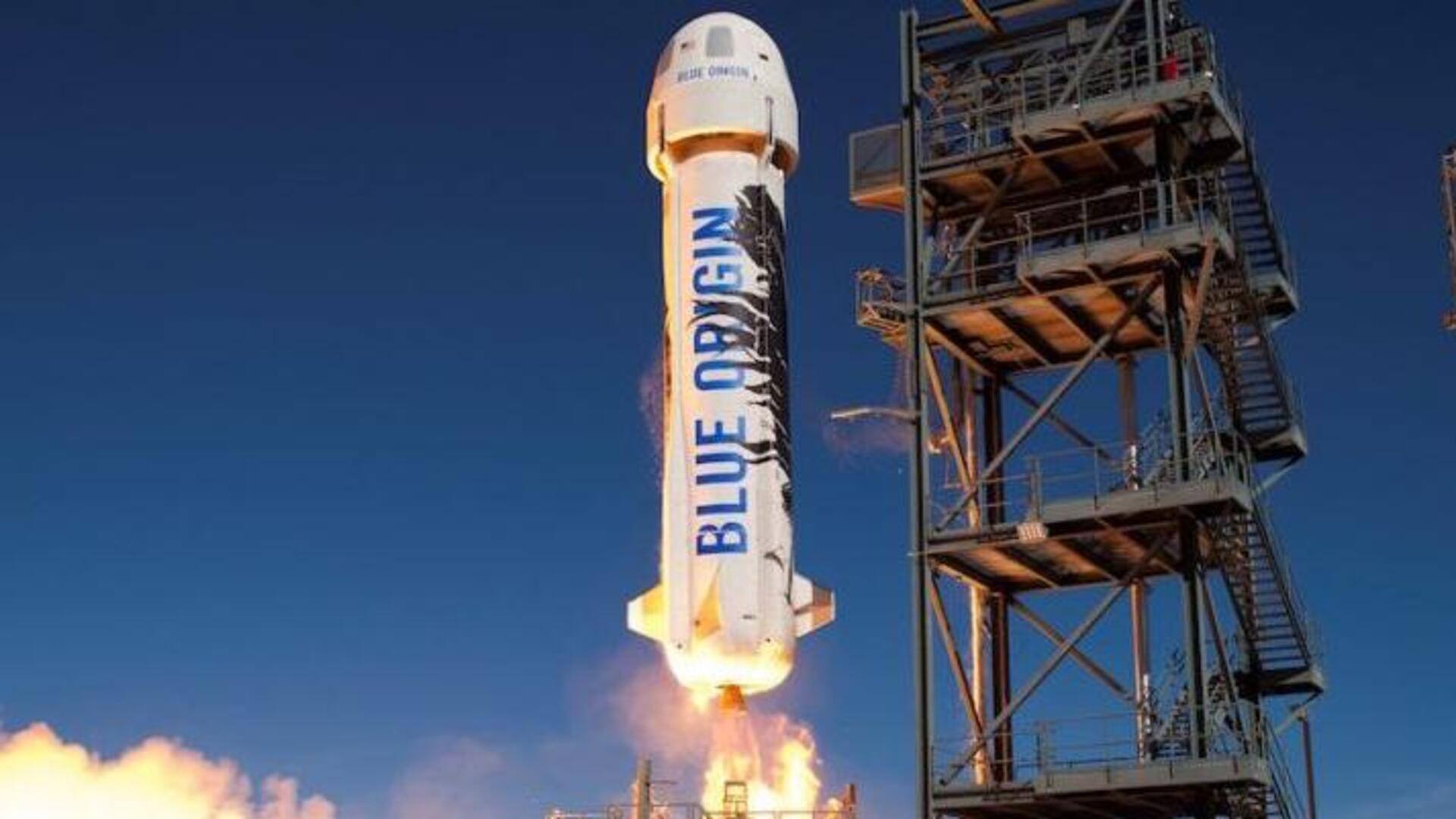
Blue Origin set for first space mission in 15 months
What's the story
Blue Origin, the space company founded by Jeff Bezos, is set to launch its New Shepard rocket today, marking its first flight since a mishap in September 2022.
The launch will take place from the company's launch site in West Texas at 14:30 GMT (8:00pm IST). The event will be live-streamed.
The mission, dubbed NS-24, will not have any crew onboard but will carry scientific equipment, over half of which has been developed in partnership with NASA.
Details
What happened during the September flight?
Blue Origin's New Shepard is a single-stage rocket that has flown paying customers to space, six times between July 2021 and August 2022.
The rocket comprises a booster stage and a capsule carrying the payload at the top.
During the September 2022 incident, an uncrewed rocket faced a glitch 27,800 feet above the launch site, causing it to explode mid-air shortly after lift-off.
The rocket's booster stage crashed, but the crew capsule landed safely using parachutes.
Payload
FAA investigation
Federal Aviation Administration's (FAA) investigation—which concluded in September—revealed the accident resulted from the rocket engine facing higher-than-expected temperature.
The agency required Blue Origin to make "21 corrective actions," particularly to the design of certain engine parts.
The upcoming NS-24 mission will transport 33 science and research payloads and 38,000 postcards for Club for the Future, Blue Origin's initiative to encourage young people to pursue STEM careers.
The FAA gave Blue Origin the green light to fly again on Sunday.
Insights
Competition and future plans for Blue Origin
Blue Origin rivals Virgin Galactic, Richard Branson's space tourism company.
So far, Blue Origin has taken 31 people to space using New Shepard rocket, including Jeff Bezos himself during the first crewed flight in 2021.
The company is also developing a heavy rocket called New Glenn, which is scheduled to launch next year.
The 320-feet tall rocket is designed to carry up to 45 metric tons into low Earth orbit, compared to New Shepard which flies to a lower altitude.